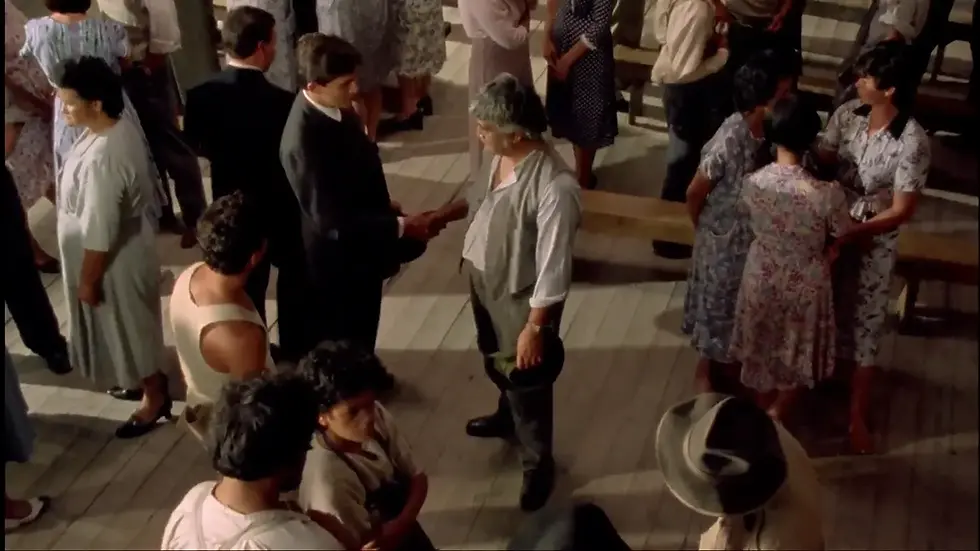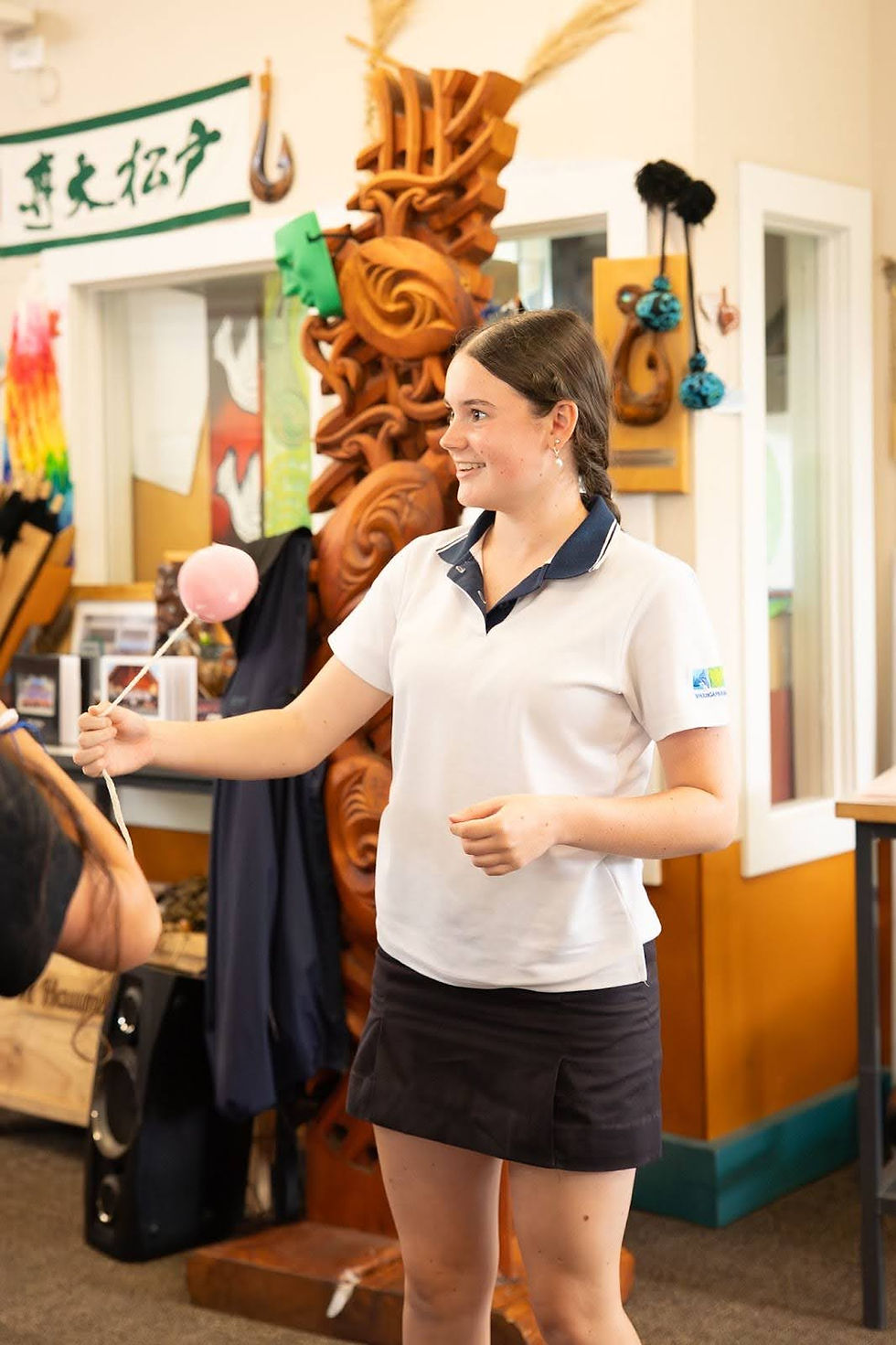Rick's Reel Recommendations #7: 3 Films for Matariki
- Ricky Lai
- Jul 21, 2025
- 4 min read
RICK'S REEL RECOMMENDATIONS | COLUMN | MATARIKI
Written by Ricky Lai (he/him) | @rickylaitheokperson | Contributing Columnist

Social Media Coordinators note:
These films are in a Letterboxd list here: https://boxd.it/LnHR8/detail
Follow Ricky Lai on Letterboxd here: https://boxd.it/lOR3
On certain days, you can feel how young Aotearoa is, pouting at its periphery to the rest of the world. It’s hard to tell what we – collectively speaking as a national consciousness – even really think of ourselves. Take Karangahape Road, for instance; The rainbow crossing spanning the width of one of Tāmaki Makaurau’s central business districts – that’s us. But the crossings overnight vandalization with white paint last March? Hurtful as it is to admit, that’s also us.
Don’t take this at all as an endorsement of reactionary ideologues, but as we recover pathways to the more radical, interesting world promised forty-or-more years ago, there’s a lot to learn from asking why our trajectory to progress is so often littered with pushback. There’s a more culturally rich Aotearoa somewhere along history – I hope we find it. In dreaming of this, these lyrics from The Phoenix Foundation tend to rattle around in my brain:
‘I wish, I could remember,
All the names of the freaks and the fakes,
And all the names of the creeks and the lakes,
And all the birds in my books about birds,
And all the words I ever heard,
I heard in my head, oh my.’
Ngati (Barry Barclay, 1987)

I’m a sucker for a period-piece atmosphere you can practically lean in and breathe the air of. Ngati’s multiple story threads are set in the fictional New Zealand town of Kapua in the year 1948. And yet, in post-colonial Aotearoa, it still brims with an optimism that I found profoundly moving – this is a rural nation in construction. Think of a rich novel unfolding with the limber, amateur-friendly rhythm of Cassavetes' ‘Shadows’ (1958). It is cosy, amicable and buzzing with communal joy, to say nothing of the sweet, coastal air, and I’ll bet a large part of this can be credited to the natal talent of Barclay’s first-time cast and crew consisting mainly of Māori folk. Ngati concludes with a tangi service for Kapua to mourn the loss of one of their youth, but the cultural specificity brought on by Barclay’s team leads to a beautiful scene where each of the tāngata wash the tapu off their hands under a tap before leaving the cemetery. I have not seen that in a movie before.
One Thousand Ropes (Tusi Tamasese, 2017)

Every projection of the abusive father in New Zealand lays, for better or worse (perhaps worse), under the shadow of Jake the Muss in ‘Once Were Warriors’ (1994) – a flagrant cartoon-sketch of a muscle-armed, bottle-breaking David Tua-wannabe with no restraint for whose lights to punch out. I’ve always felt that despite how well Lee Tamahori’s visceral approach shocks the senses, the subject matter could have, by now, used a more sensitive retread. In the crushingly slow and sensuous ‘One Thousand Ropes’, the patriarch of a Samoan father is introduced as a looming background presence during the birth of his daughter’s child; the two do not make eye contact. Between interludes that draw from Māori folklore – including the titular ‘thousand ropes’ of Maui suppressing the sun – we come to learn that he is attempting to make amends with his daughters by being there for his girls in natal and post-natal care, eluding the ghosts of his own spousal abuse that inhabit their walls. Their relationship is fraught, as we expect, but what leaves the audience a true impression is the camera’s close-up interest in seeing how he tries to rehabilitate his hands for good; rubbing coconut oil over a pregnant belly, the kneading of dough, the rolling of a lemon. You can just about catch the many scents here as the spectre of violence begins to simmer and re-surface.
Rain (Christine Jeffs, 2001)

Typically, I have no taste for brooding family melodrama – let alone that which uses death as a heavy-handed cue for the ‘Loss Of Innocence™’ – but ‘Rain’ would be so much less than that were it not for the disarming imagery here, forged out of the landscapes of rural country batches and shorelines that New Zealand holds dear. These are also characters you’ll relate with and remember. One of the very first images we see of Ed, the father of said family, catches his toes nearing a little too close to the whirling blades of a lawnmower – setting up the devastating trait of his indifference to oncoming danger. The whiskey-drunk, middle-aged house parties are steeped in elegiac quality; dimly lit faces, kissing silhouettes, and what must always be the stench of beer and whiskey. Parents in passionless marriages find their flings on the fringes, and a glass of liquor leads to young Janey’s gateway – or initiation – into adulthood. And nobody is acknowledging that they’re sad. This is the European, middle-class side of New Zealand that I recognise all too well.




Comments